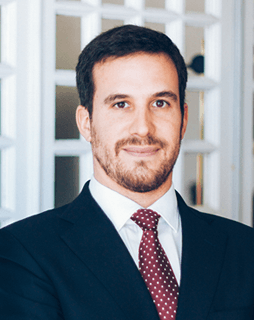Generative AI, international dispute resolution and colonial looted art - three of the focus topics at the International Libralex Conference on 06/09 and 06/10/2023 in Amsterdam
Last weekend, the Libralex Summer Conference took place in Amsterdam, Netherlands, with participation of representatives of more than 20 European, North and South American member law firms. Libralex member law firm GDP Advogados was represented by Pedro Ghidoni de Pina.
The first day of the conference started with a joint meeting of the Libralex working groups Digital Law and Dispute Resolution. Members of the other working groups also participated. In this context, Dr. Matthias Terbach of Büsing Müffelmann & Theye gave a presentation on current developments in the legislative process of the AI Act. The main focus was on the question of whether applications of generative AI, such as Chat GPT, primarily highlight the shortcomings and limitations of EU regulations or legislators' responses to this type of AI will help to improve the AI Act. Discussions also centered on the results of the international Libralex Art Law Conference held in London this May. Also discussed was the newly published third edition of the Libralex ADR Guide - a comprehensive international guide to arbitration with contributions from representatives of numerous Libralex member law firms.
Gert Jan van den Bergh and Martha Visser of Bergh Stoop & Sanders then opened the Symposium. Within their presentation "Colonial Looted Art & Emprisonment of Cultural Heritage" they gave a legal overview on dealing with looted art in the Netherlands. They addressed the importance of historical awareness, colonial art on display in Western countries, the UN Declaration on the Rights of Indigenous Peoples, and the ICOM Code. Key note speaker Wayne Modest, professor at the Vrije Universiteit Amsterdam of material culture and critical heritage studies and director of the National Museum of World Cultures (NMVW) in Amsterdam, continued with an interactive speech on the restitution of looted colonial art before leading into the discussion session. The starting point of the very exciting discussion was his thesis that communities of origin should be able to decide what happens with their heritage. The discussions showed that determining the will of the communities of origin can be complicated, for example, by new border demarcations or regime shifts. Repatriated cultural assets also sometimes end up in the vaults of the super-rich. Countries of origin increase their state coffers through the sale. Communities of origin do not get access to the art works as a result of worldwide inequality. Issues surrounding repatriation of looted heritage is thus a marker of what is essentially a much larger problem.
On the second day of the conference, strategy meetings were on the agenda of the Libralex conference. Reports were given on projects and further expansion of the Working Groups also within the member law firms themselves. The expansion of the worldwide activities of Libralex was another issue. In addition to the expansion
of content, the focus was also on the further geographical widening of the network, for example in South America.
We would like to sincerely thank Bergh Stoop & Sanders for the perfect organization of the summer meeting and for creating this great framework for another inspiring professional as well as personal exchange. Furthermore, we would like to thank all speakers and participants from all over the world for the multi-layered, instructive contributions and discussion sessions and the valuable networking and personal conversations on top of that.
The next International Libralex Conference will be held in Lisbon in autumn, hosted by GDP Advogados.
